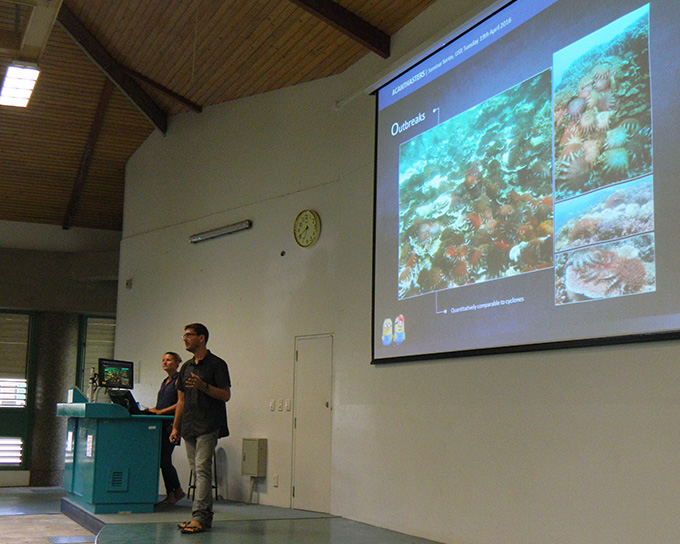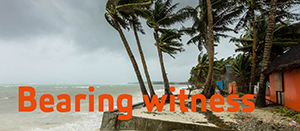
By Ami Dhabuwala in Suva
Fiji is gearing up to launch a monitor-and-clean-up project over the predator crown of thorns starfish.
The crown of thorns starfish (COTS), or Acanthaster, is responsible for disturbing coral reef ecosystems in the Indo-Pacific coastal area.
 The creature is also having a bad impact on local communities which rely on the coral reefs for their livelihood.
The creature is also having a bad impact on local communities which rely on the coral reefs for their livelihood.
In 2013, rural communities of southeast Santo in Vanuatu reported severe outbreaks of the COTS in the water.
After a few years of research and requests from local people, the Vanuatu Fisheries Department launched an initiative called the Oceania Regional Acanthaster Network (OREANET) to control the outbreak of COTS in Vanuatu and New Caledonia.
Dr Pascal Dumas, a research scientist with the Vanuatu Fisheries Department, said: “With the help of more than 10 years of reports, we have found that many Pacific islands are affected by the crown of thorns starfish.
“But as we don’t have exact quantitative data, it is a high time to start a small scale monitoring initiative.”
Lethal injection
The project focuses on different methods to eradicate COTS, including lethal injection, electric/physical barrier and asphyxiation.
“We have reports of the COTS outbreak in Fiji from our colleagues in the University of the South Pacific. They were observing outbreaks in some areas of Fiji,” said Dr Dumas.
He said there was some evidence linking the COTS outbreak to climate change.
“Increasing temperature of sea water and enrichment of coastal water are two major effects of climate change that leads to the outbreak of COTS in the water,” he said.
The project is based on the support of local communities.
Dr Dumas is looking for people in Fiji who are willing to go into the water and send reports about COTS “hotspots” in different areas which immediately need to be cleaned up.
“We need students from USP as well to work on this project. The students will be responsible to communicate with local NGOs, communities, dive operators and resort owners.”
Early warning
This project includes a website as an early warning system.
Sylvie Fiat, a data manager and IT engineer from IRD (Institut de recherche pour le développement), has developed a website and a mobile app (for Android and Windows phone) to reach out to the local people.
“Local people have to fill up a simple observation report form about their name, place and the amount of COTS they have observed in the specific region. With this request, a trained team will start the clean-up process of COTS,” said Fiat.
They have launched a website for the Fiji project as well. The website will help them monitor the COTS in different regions and also to develop an effective risk management strategy to save coral reefs.
However, people without internet access may take some help from the key people of the local community or region.
“We had some issues with the internet in New Caledonia. As a solution we appointed a few key persons in the community who can have access to the internet and with their help, people could easily submit the request form on our website or mobile application.”
The team is planning to launch awareness campaigns in Fiji in the upcoming weeks. They will give some information and training about COTS to the local communities.
“COTS have strong and poisonous thorns. So people are not supposed to touch them directly. Last year two men in Vanuatu died because of the poison,” said Dr Dumas.
He is interested in expanding this project to other Pacific Islands as well.
“We have some requests from Kiribati and Tuvalu. So hopefully we will launch this project in these countries soon.”
- The University of South Pacific’s Pacific Centre for Environment & Sustainable Development (PaCE-SD) is hosting a weekly seminar for students during their semester. This week, they invited Dr Pascal Dumas and Sylvie Fiat from Vanuatu to inform the students about their project.
Ami Dhabuwala and Pacific Media Watch contributing editor TJ Aumua are in Fiji on a two-week “Bearing Witness” climate change journalism project with the University of the South Pacific.












































